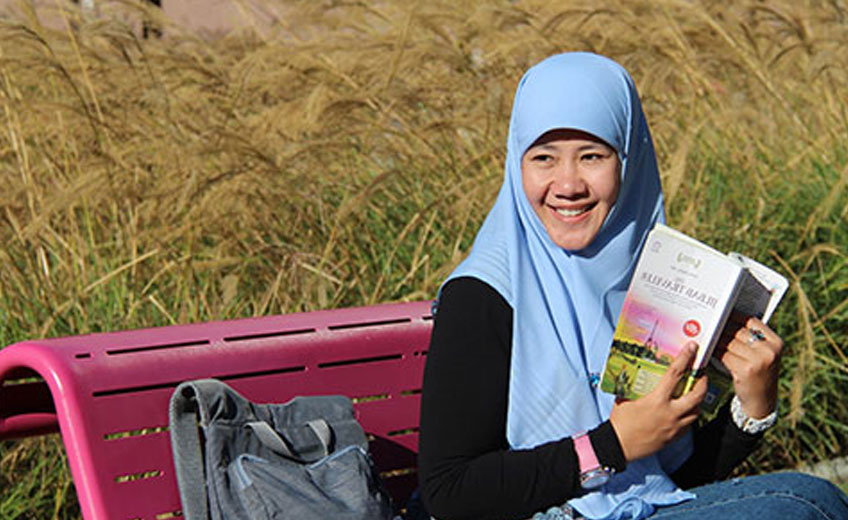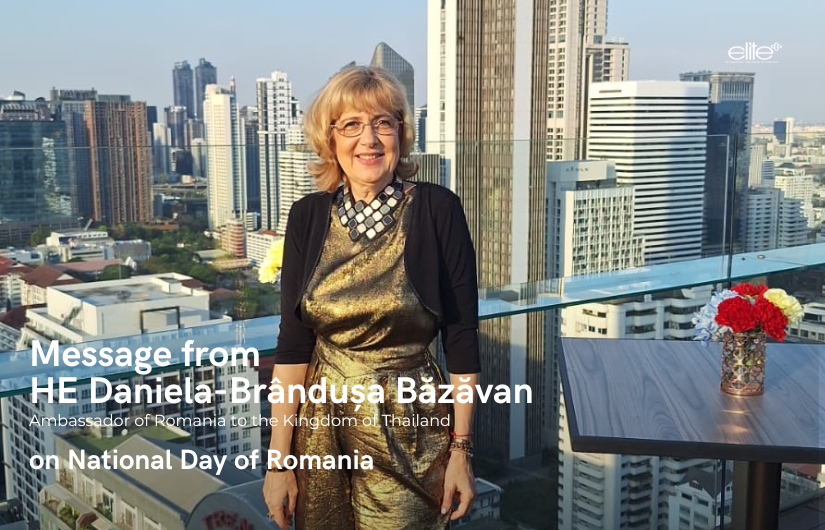“The pen is mightier than the sword”, is a statement commonly representing how influential the soft power of communication could be. Uncountable chapters of the history have recorded the incidents when people believe in violence and exploit their power to dominate the world. Yet it has proved that flesh and flood sacrificed during the wars might not be the best solution to make people believe in one own truth. An Indonesia female author is a one who supports this idea and has adapted a soft yet wiser power of writing to determine her destiny and fight for what she believes.
“It was in the late 90s when my sister talked to me and asked if I knew how many female writers we had [in Indonesia]. There were only few of them during that time and from those female writers they were even less who really wrote with their mission – the mission to spread kindness or a goal to create writing not just something for entertainment. So my sister said that’s why we had to write.”
It was the beginning of a feminist writer in a country where Muslims are the biggest population in the world. With her 50th book launched recently while several of them were adapted for screen, Asma Nadia was regarded as one of successful Indonesia writers. She came from an impoverished livelihood where the house was next to the train track. Yet the fondness in words among members of her family had shaped her life since she was young. Her father was a song writer so Ms Nadia and her sister and brother received a chance to enjoy literary world by helping him selecting Indonesian Bahasa words to describe the mood of the songs. She insisted that the poverty was never an excuse for someone to disregard reading.
“We couldn’t afford to buy books but whenever my mom came back from the market, my sister and I would unpack the newspapers wrapping the vegetables and see if they could connect with each other. That was how we started to read. There were many pages which were not connected and we could not continue reading so we had to finish it with our imagination. We could not afford going to kindergarten but my mother was the one who taught me to read and compose a story before I went to elementary school.”
The activities in her childhood have eventually lighted up her the way of literature. . Although, at first she had been haunted by the lack of self-confidence in her potential, she finally overcame it and started expressing her ideas through pen and paper. Due to her strong determination to spread love and kindness to readers, she decided to compose short stories and sent them to magazine publishers. Along the beginning of writing journey, her short stories have been published and appeared in several magazine. Until she was 27 years old, a publisher approached her and offer Ms Nadia a chance to publish her first book in her life.
“I collected my works and we published my short-story collection and novel. Actually I didn’t believe that I could write. But I was surprised that the first book which was the novel received a huge response and later reprinted more than 11 times. It was like the God opened the door to show me what I was looking for. I probably was one of the smartest students in the school but I was sick since I was six years old; I got brain contusion, cardio and tumour problems. Thus, even though, I got into the university without having a test, I had to resign when I was in the second year because of the health condition.”
As a teenager with parents who fought for their children’s life and education. She found this resignation would let their parents down and motivate her to commit writing as a profession seriously. Unlike the trend of female writing at that time which usually presented beautiful romances or guided women on how to be an ideal wife, the theme of her books has mainly questioned on the perception of Indonesian women in the society. “Don’t be a jerk, Muslim women” was one her of works portraying aspects of women wider than physical beauty or domestic chores. Even though some of Ms Nadia’s books were responded with an aggressive controversy at first, readers are becoming more liberal with her idea nowadays.
She has devoted herself creating masterpieces as a mouthpiece of Muslim women to fight for hope and right that they are supposed to have. In accordance with the fact that her first book was published with an Islamic book publisher, she was unintentionally recognised as one of influential female Muslim authors in Indonesia. Awards and reputation were products of her contribution along the way as a writer; in 2005 her novel, Derai Sunyi or the Silent Tear in English won a prize from the South East Asia Literary Council (MASTERA) as the best participant in 10 years while Istana Kedua or the Second Palace received the best Islamic Indonesia novel award in 2008. Besides, three of them were adapted for the screen platform. Most of Asma Nadia’s books were the best sellers and some were translated and sold in Malaysia and India. Ms Nadia confirmed that the stories described in her books were not particularly meant for Muslim but universal for anyone or any religions.

























































































































































































































































































































































































































































































































































































































































































































































































































































































































